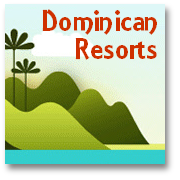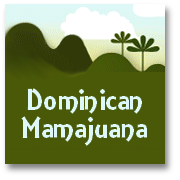Avoiding malaria
our top tips!
Tips for avoiding malaria
Original article by Al Smith
Firstly it should be said that although malaria in the Dominican Republic is a risk factor, the majority of tourists are at relatively low risk of contracting it due to insecticidal spraying, and a few additional simple precautions can reduce the chances of even being bitten by any kind of mosquito to almost nil!
In fact as you'll hear in this video about the anopheles mosquito, and the spread of malaria, it actually lives in 48 states within the US:
Anopheles mosquitoes, like most others of their ilk, are particularly active at dusk and dawn. At these times the following precautions are recommended. By far the most effective way to avoid contacting malaria is to AVOID GETTING BITTEN by mosquitoes! This sounds obvious, but people often forget to take the following simple precaution:
Avoiding malaria tip (1)
One of the most effective measures is simply to apply insect repellent creams or sprays at regular intervals to all exposed parts of your body, particularly before dusk.
Although many people dislike the use of ‘strong chemical’ anti-insect creams or sprays yet many preparations contain DEET. These products have an instantaneous and quite long lasting effect and also usually have little or no scent. Whilst highly regarded for their effectiveness at repelling insects they are potentially unpleasant to use for many and there are considerable concerns about the toxicity of the chemicals you might be absorbing via your skin. We include additional advice about using DEET based mosquito repellents here.
If you are sensitive to DEET, or don’t like the idea of applying such ‘chemicals’ to your skin, or especially your children’s skins in particular, you can also obtain ‘herbal’ products and sprays made with natural ingredients. One really good quality option is manufactured by ONEgroup, under the brand MiEnviron - Buzz Free Zone. It has the added blessing that it is made with Certified Organic ingredients and contains none of the nasty chemicals. You can take a look at Buzz Free Zone and other other Certified Organic products here.
Avoiding malaria tip (2)
During the evenings, night-time, and through til ‘sun-up, you should wear light clothing that will cover your arms and legs. A long sleeved blouse or shirt, and long lightweight slacks or skirt are ideal.
Avoiding malaria tip (3)
Overnight be sure to use a mosquito net to reduce chances of being bitten whilst sleeping. Some hotels/accommodation may have mosquito nets already in place, but you can be prepared for anything by carrying a simple to erect and effective net like the Readynet which quickly ‘assembles itself’ to form a canopy. The Readynet is easily packed away and weighs almost nothing, so is no trouble to include in your packing.
Avoiding malaria tip (4)
If you want to enjoy a mild evening on your veranda looking out on the sea as the sun sets, then you can reduce mosquito and other flying nuisances by burning a smoldering anti-mosquito coil. The smoke from these traditional ‘campers friends’ is quite effective at keeping ‘beasts at bay’ but the smell is not that pleasant.
Avoiding malaria tip (5)
Another (slightly) more pleasantly scented option is some form of citronella based candle or oil burner. These will reduce the number of flying pests...but cannot really be relied on to stop the odd persistent bug from actually biting you!
Avoiding malaria tip (6)
In your rooms (assuming electricity is available) you can use small plug-in heaters to release vapors from anti-mosquito tablets. These can be extremely effective if all doors and windows remain closed and shuttered, this is naturally more possible (and desirable) when air-conditioning is available.
Avoiding malaria tip (7)
If you know you are likely to spend time in an area known for the infection, then you should consider being ‘medicinally’ more pro-active. Anti-malarial drugs can be obtained from your Doctor, and a course of drugs (depending on the type and strength) may need to be commenced at least a month before departure on vacation, and continued for a month after your return.
Prevention is better than cure!
As you can see the implication of trying to avoid contracting malaria is that you will have to consume a considerable quantity of powerful chemicals over a prolonged period, such is the tolerance of the malaria parasite. For some this is too high a price, especially if the chances of coming into contact with malaria are relatively remote, as they are in most of the DR.
Indeed you are best advised to consult with your doctor in good time and make your own decision about what to do. Depending on where you come from you may find that there are different medicinal regimes you can be prescribed, or purchase. The more intensive treatment, involving the consumption of fewer tablets or doses of anti-malarial drug, generally tend to be more expensive.
You may also find that you are intolerant to anti-malarials. Many of you may also have heard that there can be a range of unpleasant side effects triggered by some anti-malarial regimes. If you suffer unpleasant side-effects you should consult with your GP/MD immediately.
If you choose not to take any pre-vacation medication against malaria, and start to develop ‘flu-like’ symptoms or any of the other reactions described on our malaria symptoms page, you MUST seek medical advice as soon as possible.
What if you do get bitten? How will you know if you MIGHT be exhibiting symptoms of malaria? Check out our malaria symptoms page for more advice.
And if anything else is 'bugging you' then be sure to take a look at our:













